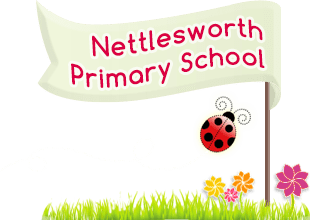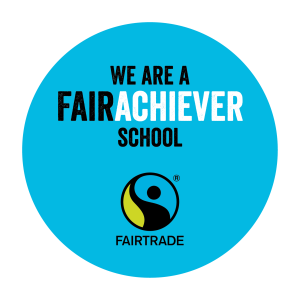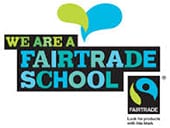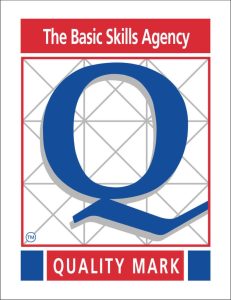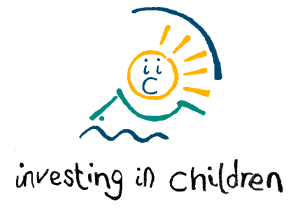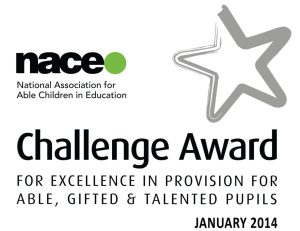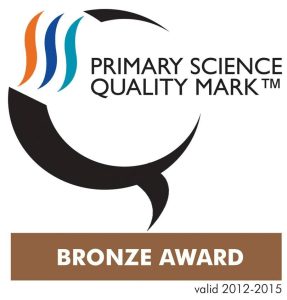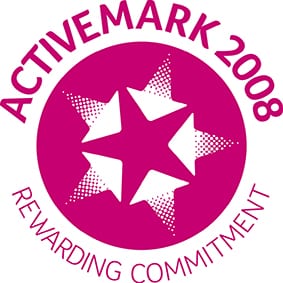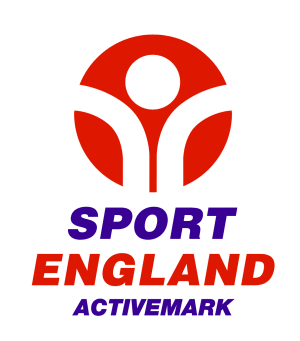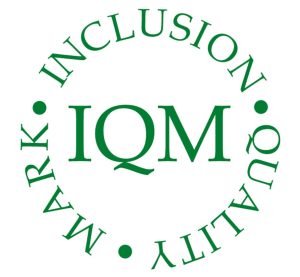Nettlesworth Primary School Curriculum Design Statement
Curriculum Design Statement 2023-24
Intent
At Nettlesworth Primary School, we have designed our curriculum with the intent that all children must have the building blocks to become successful adults in terms of being able to gain employment, live healthy lifestyles, be moral citizens and to take opportunities to extend their horizons.
These themes are central to our vision: Inclusion, Pupil Voice and Respect.
In recognition of the context of the start points of many of our children, we have a strong focus on the teaching and learning of maths and English as lack of skills in these areas can impact future career options.
As we hope that our children will aspire to a range of careers and personal interests in the future, and to ensure that they gain knowledge and skills across all subjects, we designed our curriculum to cover not only the statutory aspects of the National Curriculum but to take account of our local mining and agricultural heritage.
The curriculum at Nettlesworth Primary is designed to provide a broad and balanced education that meets the needs of all children. It provides opportunities for children to develop as independent, confident and successful learners, with high aspirations, who know how to make a positive contribution to their community and the wider society. The curriculum ensures that academic success, creativity and problem solving, reliability, responsibility and resilience, as well as physical development, well-being and mental health are key elements that support the development of the whole child and promote a positive attitude to learning. The curriculum celebrates the diversity and utilises the skills, knowledge and cultural wealth of the community while supporting the children’s spiritual, moral, social and cultural development, ensuring that children are well prepared for life in modern Britain.
Our key aim is that when children leave us to move on to secondary school, they have:
- confidence in themselves and their attitudes to learning
- a firm grasp of basic skills
- recognise that there is life and opportunities beyond Nettlesworth
- aspiration to they need to aim high and challenge themselves to achieve great things in the future whether that means a job or travel
- A strong sense of moral purpose and respect for others
A coherently planned academic curriculum
Here you will find an overview of the EYFS framework and the Curriculum offer for children in Years 1 to 6. There are also sections on Spiritual, Moral, Social and Cultural Development (SMSC), Rights Respecting Ethos and British Values.
The curriculum incorporates the statutory requirements of the National Curriculum 2014 and other experiences and opportunities which best meet the learning and developmental needs of the children in our school.
In EYFS the curriculum is heavily child initiated with children choosing the topics or areas they wish to study. This is done on a half termly basis via consultation with adults and children.
In Key Stage 1 children follow National Curriculum guidelines but within this there is still the opportunity for child initiated topics to be covered. To date these have included The World, Pirates, Light and Dark, Undersea and Vehicles.
In Key Stage 2 using the National Curriculum, teachers have planned and developed exciting topic titles which connect discrete subjects together with strong links. Each subject is given individual time so that children can learn many skills and have a broad and balanced curriculum. It also allows children the opportunity to develop talents in a wide variety of skills and disciplines.
We are a UNICEF Rights Respecting School and as such give children the opportunity to explore global issues within their curriculum. Children therefore learn about issues such as Fair Trade, Land Mines, Refugees and Endangered Species.
This approach to the curriculum and learning we feel gives us a broad and balanced curriculum which allows children to have a voice in what and how they learn whilst also equipping them with the necessary skills they need in order to be effective learners.
Implementation
- Our curriculum design is based on evidence from cognitive science; three main principles underpin it:
1) Learning is most effective when spaced rather than blocked.
2) Interleaving helps pupils to discriminate between topics and aids long-term retention
3) Retrieval of previously learned content is frequent and regular, which increases both storage and retrieval strength.
- In addition to the three principles we also understand that learning is invisible in the short-term and that sustained mastery takes time.
- Some of our content is subject specific, whilst other content is combined in a cross-curricular approach. Here at Nettlesworth Primary School we have introduced a creative curriculum based around the Cornerstones Curriculum, a nationally recognised approach for delivering outstanding learning opportunities for children.
What is the Cornerstones Curriculum?
The Cornerstones Curriculum is a creative and thematic approach to learning that is mapped to the 2014 Primary National Curriculum to ensure comprehensive coverage of national expectations. Our new curriculum will be delivered through Imaginative Learning Projects
(ILPs) which will provide a rich menu of exciting and motivating learning activities that make creative links between all aspects of our children’s learning. We have designed
our curriculum by choosing ILPs that meet our students needs and abilities.
We believe children learn better when they are encouraged to use their imagination and apply their learning to engaging contexts. Our curriculum will provide lots of learning challenges throughout the academic year that will require children to solve problems, apply themselves creatively and express their knowledge and understanding effectively across the curriculum.
How it Works?
The Four Cornerstones of Learning provide the structure on which to build your curriculum. We call these Engage, Develop, Innovate, and Express.
Engage – hook children in with a memorable experience.
Develop – allow children time to gather the skills and knowledge they need to develop a deep understanding.
Innovate – offer creative experiences that allow children to apply their skills, knowledge and understanding.
Express – provide the space and time for reflecting, evaluating, and celebrating learning.
To find out more about these stages please click on the link through to Cornerstones website to find out more:
Continuous provision, in the form of daily routines, replaces the teaching of some aspects of the curriculum and , in other cases, provides retrieval practise for previously learned content.
- Opportunities for child voice are planned at the beginning of each new topic and this is used to inform the learning for each topic to ensure relevance.
- The curriculum provides children with memorable experiences, in addition to diverse and rich opportunities from which children can learn and develop a range of transferable skills.
- The children’s own community, its heritage and traditions are frequently used as a starting point for engaging interest. We have strong and varied links, as well as engagement with the local community, to enrich children’s learning experiences.
- The school’s curriculum is broad and balanced. The school makes a conscious effort to engage with drives that will enable further development and excellence in specific areas and has achieved the Primary Science Quality Mark at Bronze level. The outdoor environment and the local community are considered an opportunity for active learning for all our children. The school grounds have been developed so they can enrich different curriculum areas, particularly science. We are a Forest School and are committed to ensuring that all learners have access to good quality educational experiences beyond the classroom walls, and for engaging in an ongoing process to ensure frequent, continuous and progressive learning outside the classroom opportunities are integrated into the curriculum.
- We are an Inclusion Quality Mark School, who focuses on the pursuit of outstanding teaching and learning and creating an environment in which every student has the opportunity to flourish.
- We are a NACE accredited school (an award in recognition of school-wide high-quality provision for more able learners within a context of challenge for all) and ensure there is a whole school commitment and a clear focus to providing for More Able Gifted and Talented pupils. We provide pupils with a wide range of experiences and opportunities individualised to their personal needs and interests. Parents are closely involved in the education of their child and are consulted about their provision.
- As a Rights Respecting Gold School, we place the UNCRC (United Conventions of the Rights of a Child) at the heart of its planning, policies and practice. The school has a Rights Respecting Ethos, where children are empowered to become active citizens and learners.
- We hold the Sainsbury’s Games Platinum Award. The Platinum Award was launched 2017 as an extension of the School Games Mark to reward schools who have maintained consistently high standards with their school sport provision.
- We have been awarded the AfPE quality teaching mark for PE for 2018 – 2021. We are so proud of all of the amazing and hard work that goes on in PE in school and are delighted that our hard work has been recognised.
- A varied timetable for extra-curricular activities is offered by the school, with clubs that support the core curriculum offer, as well as those which develop specialist skills, such as fencing, whilst also extending the range of children’s experiences. A primary focus of our curriculum is to raise aspirations, engender a sense of personal pride in achievement, and provide a purpose and relevance for learning.
- The school takes pride in providing a highly inclusive environment, where learners demonstrate high levels of enjoyment in their education and most make very good progress in most subjects and areas of learning. Children at all levels are helped to achieve their potential. Those who are most able are challenged and supported through being offered tasks which provide opportunities for greater depth and those who struggle are encouraged and given targeted support to embed skills, to develop at their own pace or simply to learn in a style that best suits their individual needs.
- Subject leaders play an important part in the success of the curriculum by leading a regular programme of monitoring, evaluation and review and the celebration of good practice contributes to the ongoing commitment to evolve and improve further. All subject leaders are given training and the opportunity to keep developing their own subject knowledge, skills and understanding, so they can support curriculum development and their colleagues throughout the school.
Impact
- The innovative practice across the school provides a strong foundation and opportunities for children to collaborate and develop social skills both indoors and out. This curriculum design ensures that the needs of individual and small groups of children can be met within the environment of high quality first wave teaching, supported by targeted, proven interventions where appropriate. In this way it can be seen to impact in a very positive way on children’s outcomes. We track carefully to ensure pupils are on track to reach expectations of our curriculum.
- Enjoyment of the curriculum promotes achievement, confidence and good behaviour. Children feel safe to try new things. High quality visits and visitors to the school enhance the curriculum and provide opportunities for writing for a purpose.
- Children have opportunities to share their learning with each other, their parents and carers and other learners through school-based and external exhibitions, performances, competitions and events involving other schools. Developing their independence and motivation as learners and their sense of responsibility as future citizens is at the heart of all our teaching and learning.
British Values
Democracy
Democracy is embedded at the school. Children are always listened to by adults and are taught to listen carefully and with concern to each other, respecting the right of every individual to have their opinions and voices heard. This is also supported by our PSHE curriculum which covers fairness, compromise and resolving conflict. Children also have the opportunity to air their opinions and ideas through our School Rights Respecting Council, Pupil Improvement Plan, Daily Circle Time and regular questionnaires. The concept of democracy is reinforced through KS2 History lessons (the Greeks) and assemblies which have addressed how general elections and parliamentary democracy works in the United Kingdom.
The Rule of Law
The importance of the Rule of Law is consistently reinforced whether they are those that govern the class, the school or the country. Our school has rules which are embedded in our work every day. Each class also discusses and sets its own rules that are clearly understood by all and are seen to be necessary to ensure that every class member is able to learn in a safe and orderly environment. The Rule of Law is included in our PSHE curriculum. Our children are taught the value and reasons behind laws, both in school and in wider society. They understand that they govern and protect us, the responsibilities that this involves and the consequences when laws or rules are broken. The laws related to alcohol, drugs and tobacco are covered. Visits from authorities such as the Police and Fire Service, NSPCC and the School Nurse, the Year 6 Safety Carousel and Internet Safety Day help reinforce this message in our PSHE lessons. Designated British Value Assemblies, Rights Respecting Assemblies and Safeguarding Workshops covering the ‘Rule of Law’ have focused on school issues such as lunchtime rules, why washing your hands is important and how the legal system works.
Individual Liberty
Within school, children are actively encouraged to make choices, knowing that they are in a safe and supportive environment. As a school we educate and provide boundaries for our children to make choices safely, through the provision of a safe environment and an empowering education. Our children are encouraged to know, understand and exercise their rights, responsibilities and personal freedoms, linked to the United Nations Convention on the Rights of the Child, and are advised how to exercise these safely; examples of this can be clearly seen in our e-safety Computing and PSHE lessons. Whether it is through choice of challenge, of how they record information, or of participation in our numerous extra- curricular activities, our children are given the freedom to make choices. Assemblies and PSHE lessons cover gender stereotypes, heroes of liberty (e.g. Martin Luther King), and the UN Convention.
Mutual Respect
Our children know and understand that it is expected that respect is shown to everyone, whatever differences we may have. We have a multi-cultural school community and we are committed to developing respect for all cultures. We believe that this respect is fostered through PSHE lessons (focussing on families, caring and respectful relationships in real life and online) and in RE. As well as developing intercultural understanding through the vehicle of Primary Languages, our Peer Mentor programme in Year 4 encourages mutual respect of our diversity.
Tolerance of those with Different Faiths and Beliefs
Our core values ensure tolerance of those who have different faiths and beliefs. At Nettlesworth Primary School we have children from a variety of religious backgrounds, including those with no religion. We enhance children’s understanding of different faiths and beliefs through Religious Education, PSHE work and learn about other places of worship to deepen understanding of different celebrations and beliefs. These are studied in depth, with visitors being invited into our school to enrich and extend understanding. The History curriculum in Year 5 and 6 covers the important issue of the Holocaust and the effect of a system which lacked such tolerance. KS1 and KS2 assemblies show examples of people showing tolerance of those with different faiths and beliefs.
All of these values encompass elements of a child’s Spiritual, Moral, Social and Cultural (SMSC) Development . SMSC Development takes place through all areas of the curriculum, including PSHE, R.E., History, Geography, Computing, Music, Art and D.T., P.E., Science, Maths, English and French.
Cultural Capital
What is Cultural Capital?
At Nettlesworth Primary School, we strive to equip pupils with the knowledge and cultural capital they need to succeed in life. Our understanding of this knowledge and cultural capital matches that found in the aims of the national curriculum. It is the essential knowledge that pupils need to be educated citizens. Cultural capital is the accumulation of knowledge, behaviours, and skills that a student can draw upon and which demonstrates their cultural awareness, knowledge and competence; it is one of the key ingredients our students will draw upon to be successful in society, their career and the world of work. Cultural capital promotes social mobility and success in society.
Six key areas…
We recognise that there are six key areas of development that contribute to the development of a student’s cultural capital:
Personal Development
Social Development, including political and current affairs awareness
Physical Development
Spiritual Development
Moral Development
Cultural development
Cultural Capital and our Curriculum
Each subject area makes its own contribution to students’ cultural capital development. This may be through lessons, after school clubs, visits, assemblies and/or other aspects. In addition, we specifically teach careers, aspirations and skills for life.
Character Education
What is character education?
Character education can be broadly described as an approach to developing a set of values, attitudes, skills and behaviours that are thought to support young people’s development and contribute to their success in school and in adult life.
Why is character education important?
Extensive research completed over many years and in many countries, has shown that learning social and emotional skills and developing certain behaviours and attitudes can have a positive impact on pupil attainment. Emotions can support or impede pupils’ learning, their academic engagement, work ethic, commitment and ultimate school success. A number of specific social and emotional skills have positive effects on academic achievement:
- Pupils who are confident about their learning and who have a ‘growth mind-set’ (they believe their most basic abilities can be developed through dedication and hard work) persist when faced with challenges.
- Pupils who can set goals, manage stress and organise their school work achieve higher grades.
- Pupils who use problem-solving skills to overcome obstacles do better academically.
- Social and emotional competencies have been found to be a more significant determinant of academic attainment than IQ.
We believe that Character Education within Nettlesworth Primary School is driven through the foundations of our Rights Respecting School values.
Every aspect of school life and our curriculum offer opportunities to develop character.
Teaching Character across Nettlesworth Primary School
Character education is in the heart and soul of everything we do across Nettlesworth Primary School. We strongly believe in growing the individual child alongside delivering an exciting, motivating and engaging curriculum. We understand that what we teach children in school and what parents do at home helps shape the character of our children and their future. Character is something that forms and takes shape over a lifetime, formed by the many opportunities, experiences, decisions and interactions that happen every day.
The Rights Respecting Schools values, drive everything we do and are central to the whole school curriculum. Taking a child-centred approach, the constructing of our ‘bespoke’ curriculum used an integrated approach between staff and pupils working together to formulate the learning journey that broadens horizons, celebrates our local area and involves parents and the community with school learning.
Our curriculum provides purposeful learning opportunities where pupils draw upon and develop key ‘skills for life’ and characteristics, through an immersive approach. Across school, we want to create a culture both in and out of school where children are given every opportunity to rehearse and strengthen their sense of themselves.
As a school, we understand that ‘characteristics’ are equally as important as reading, writing and maths….characteristics such as curiosity, self-control, teamwork, independence, concentration, resilience etc. are life skills needed for our pupils to be the best they can be and are the solid foundations needed for success at school and in adult life.
Careers Education, Information and Guidance (CEIAG)
At Nettlesworth Primary school we pride ourselves on being a place which fosters a life-long love of learning by providing a range of opportunities which help our pupils to make progress towards their learning and employment goals. Careers Education, Information and Guidance (CEIAG) is a major contributing factor towards preparing young people for the opportunities, responsibilities and experiences they will encounter in school, in further education and in working life. It not only supports children to achieve their full potential, but also empowers them to plan and manage their own futures, raises their aspirations and promotes equality, diversity and social mobility.
Benchmarks for Good Career Guidance
A stable careers programme
Every school and college should have an embedded programme of career education and guidance that is known and understood by pupils, parents, teachers and employers.
Learning from career and labour market information
Every pupil, and their parents, should have access to good quality information about future study options and labour market opportunities. They will need the support of an informed adviser to make the best use of available information.
Addressing the needs of each pupil
Pupils have different career guidance needs at different stages. Opportunities for advice and support need to be tailored to the needs of each pupil. A school’s careers programme should embed equality and diversity considerations throughout.
Linking curriculum learning to careers
All teachers should link curriculum learning with careers. For example, STEM subject teachers should highlight the relevance of STEM subjects for a wide range of career pathways.
Encounters with employers and employees
Every pupil should have multiple opportunities to learn from employers about work, employment and the skills that are valued in the workplace. This can be through a range of enrichment opportunities including visiting speakers, mentoring and enterprise schemes.
Experience of workplaces
Every pupil should have first-hand experiences of the workplace through work visits, work shadowing and/or work experience to help their exploration of career opportunities, and expand their networks.
Encounters with Further or Higher Education
All pupils should understand the full range of learning opportunities that are available to them. This includes both academic and vocational routes and learning in schools, colleges, universities and in the workplace.
Personal Guidance
Every pupil should have opportunities for guidance interviews with a Careers Adviser, who could be internal (a member of school staff) or external, provided they are trained to an appropriate level. These should be available whenever significant study or career choices are being made. They should be expected for all pupils but should be timed to meet their individual needs.
Nettlesworth Primary is committed to achieving these career benchmarks as part of our careers programme which is underpinned by other key school policies including the PHSE policy, the Curriculum Policy and the SEND policy.
How we Support Early Career Aspiration at Nettlesworth:
We know that even at the young age of three or four, children are already starting to form their first aspirations. By six they are starting to have opinions on what they think they can or can’t do in the future. And by the time they’re 10, young people start to make decisions which could go on to limit their future options.
This is why we have embarked on a pilot programme partnership with North East Local Enterprise Partnership (NELEP) to strengthen careers guidance for pupils and help open their eyes to the range of possibilities their futures hold.
The support from colleagues from NELEP will help us to make sure that all Nettlesworth children have the best possible guidance to help them understand the exciting opportunities that are open to them as they grow up.
It’s not about children choosing their future jobs at this very young age. It’s about helping our children and young people to have ambitions and aspirations for themselves, helping them to learn about the variety of jobs open to them and the fantastic range of opportunities we have in the region, and to gain a broad understanding of the routes to get into work, including the essential skills and attitudes required to be successful in the workplace.
Growth Mindset
At Nettlesworth Primary School, we know that pupils who have a positive attitude towards their learning will make good progress and be successful. Consequently, instilling all our pupils with ‘growth mindsets’ has become a key priority for the school from January 2018. We have introduced the theories of Dr Carol Dweck to staff and pupils and are determined to embed its ideas within our school ethos.
We want all our pupils to relish challenges, embrace their mistakes as part of the learning process, value the importance of effort, respond carefully to feedback and take inspiration from others. This will help them to achieve, not only with us, but also in their future lives as adults.
We are very excited about the prospect of nurturing a growth mindset culture at Nettlesworth Primary School. Please see the Growth Mindset presentation shown to parents.
Encouraging children to become confident and resilient learners
Learn, explore and grow together. This is what we embed in all of our pupils here at Nettlesworth Primary School. We know that in order to fulfil the potential of our pupils and encourage them to become confident and resilient learners we, as a team of parents and staff, need to be modelling the mindset of a learner who is not afraid of making mistakes but who thrives upon them, knowing that this is all part of the learning process. The way in which we encourage children to learn and explore is vital to their success, not only at school but at home as well.
At Nettlesworth, we consistently endeavour to challenge and develop the attitudes of all pupils and staff towards learning by considering what makes a successful learner. We have dedicated sessions in class to address what kind of learners we want to be and how we can positively approach challenges inside and outside the classroom. The school is buzzing with talk of perseverance, challenge, risks and celebrating mistakes.
Central to this attitude and approach to learning, are the theories and proven evidence of Growth Mindset. This is a term coined by psychologist Carol Dweck and her research has identified the characteristics of learners with a fixed and a growth mindset:
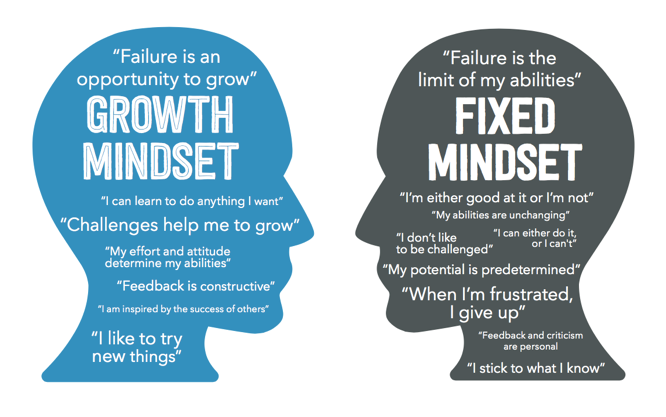
The following video explains the concept in more detail: https://www.youtube.com/watch?v=KUWn_TJTrnU
Key aspects of growth mindset at Nettlesworth Primary School:
- We celebrate making mistakes – we can learn from them;
- We never give up – perseverance is the key if we are to succeed;
- We learn from each other;
- We don’t compare ourselves with others;
- We challenge ourselves and take risks;
- We remember that our brains are making new connections and growing all the time.
For further information on how to encourage confident and resilient learners at home, have a look at some of the links below.
Special Educational Needs and Disabilities (SEND)
At Nettlesworth Primary we believe that inclusive education means providing all pupils with appropriate education and support alongside their The Curriculum is all the planned activities that the school organises in order to promote learning, personal growth and development. Further information can be found in the SEN Information Report.
Adobe Reader
You may need a product like Adobe Reader (free download) to view our PDF documents on our website.
